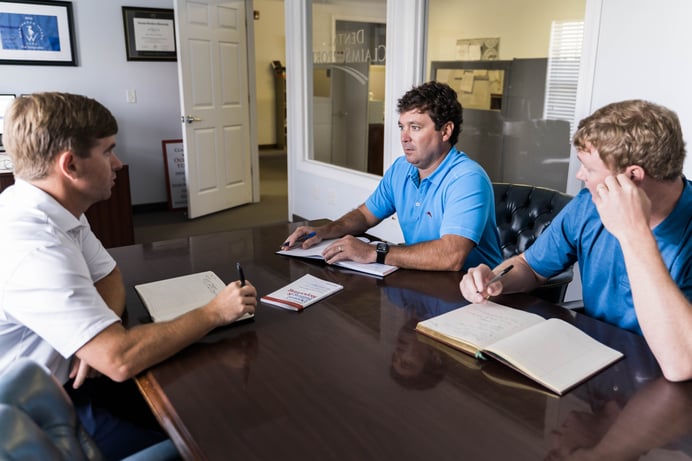3 common dental re-credentialing questions answered


After a few years of being credentialed with an insurance company, you might be notified that it’s time to be re-credentialed. Is it totally necessary? Does it take as long as becoming credentialed the first time? What information do they need? Do I have to do this for every insurance company I participate with? All of the sudden, whew, you’re overwhelmed and feeling stressed about getting this done.
Here at Dental ClaimSupport, we’ve been helping dentists get credentialed and re-credentialed for years. It’s one of our most-used service offers. We’re here to let you know: Your re-credentialing experience doesn’t need to be stressful. It’s a very similar process to getting credentialed the first time, except takes less information and time!
In this article, we’ll answer 3 common questions we hear from dentists about becoming re-credentialed:
- Is re-credentialing it necessary?
- What information is needed to re-credential as a dentist?
- How long does re-credentialing take?
You will walk away from this article knowing exactly what you need to do to be re-credentialed so that your practice can remain compliant and in-network with insurance companies in order to bring in more patients.
1. If I’m already credentialed as a dentist, why would I need to be re-credentialed?
Like all the best foods, your credentialed status has an expiration date! Dentists typically need to be re-credentialed every 2-3 years.
Insurance companies need to confirm that dental practitioners in their network remain professionally qualified. Re-credentialing is the process insurance companies use to determine that your license is in good standing, that you are qualified according to their eligibility criteria, and that they have updated information.
The good news is, insurance companies will typically send you a notice in the mail reminding you it’s time to be re-credentialed.
This is important if you want to remain in-network with these insurance companies. If you don’t become re-credentialed by the deadline the insurance company provides, your patient will find another dentist who is in-network with their insurance, or pay entirely out-of-pocket (which we doubt they’d be happy about).

2. What information is needed to become re-credentialed as a dentist?
When you are credentialed the first time, you need to include quite a bit of information in your application. You might be thinking, “Do I need all of that information at the ready again?” Here’s the good news: they already have all of your information, so here’s all you need to include to be re-credentialed:
- Any changes to your billing or physical address
- Your up-to-date dental license
- Your up-to-date DEA license - allows you to prescribe narcotics
- Anything else that may have changed since you were last credentialed:
- Phone number
- Fax number
Once you take care of this, the insurance company will already have your other information and will be able to re-credential you without any unnecessary delays.
3. How long does it take to be re-credentialed as a dentist?
Here’s another piece of good news: it takes less time to be re-credentialed than to be credentialed for the first time. Yay! Since they have already verified most of your information, and just need a few updates on your license, there is less turnaround time for your application.
Becoming re-credentialed with an insurance company typically takes between 30-90 days, as opposed to when you were originally credentialed, which took around 90-180 days.
Because it takes less time, start the process ASAP from when you receive the email from insurance. You typically receive a 60-day notice.
Only mistakes could make the re-credentialing process take longer
The only issues that might prolong the re-credentialing process are mistakes or omissions when updating your information. Since the insurance company already has most of it and assuming you don’t have too much to update, it shouldn’t be an issue.
Learn the top 5 mistakes dentists make during the credentialing process in our Learning Center.
Of course, we’ve still seen mistakes with re-credentialing happen. It’s not the end of the world - but it will prolong the process. Make sure you are double-checking every number you put onto your application so that it is correct and you can continue to benefit from your contract with insurance companies.
Ready to remain in-network with insurance companies?
By directly contracting with an insurance company, you will receive more referrals from the carrier’s subscribers -- the members who have insurance plans covering themselves and their family members. It gives you access to a larger overall pool of patients - don’t you want to keep that?
Maintain this large pool of patients by staying in-network with insurance companies and being re-credentialed every 2-3 years. You can complete this process yourself, or utilize outsourced services to handle it for you, like us at Dental ClaimSupport.
Learn how an outsourced dental billing company can help you become credentialed and re-credentialed so that you can continue bringing in more patients to have a successful dental practice.
Related Posts
Dental revenue resources from Dental Claim Support

